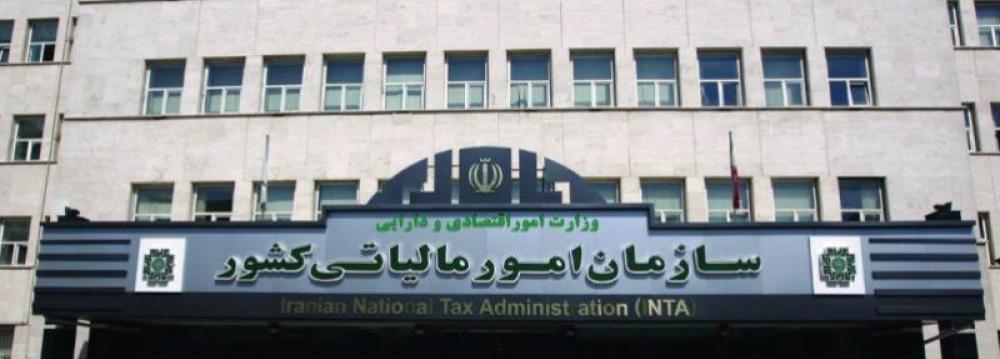Majlis Joint Commission, a parliamentary body responsible for reviewing the budget bill as well as the five-year economic development plans, has put forth a bill that would reduce tax on production from 25% to 20%.
According to Mojtaba Rezakhah, a member of the commission, only 29% of government resources in the budget bill of the next fiscal year (March 2021-22) are considered sustainable revenues, such as income tax and the rest have been projected to come from sales of bonds and oil.
“At the Joint Commission, are trying to increase the share of sustainable revenues to 50%. The main goal is to increase tax on the rich, profiteers and importers. Majlis took a revolutionary step and approved tax on luxury cars; people must help the economy in proportion to their wealth. Production should not be pressured by tax; increasing the value added tax rates is not reasonable either,” he was quoted as saying by Fars News Agency.
The proposed decline in tax on the production sector comes, as Mohammad Baqer Nobakht, the head of Plan and Budget Organization, announced that "tax on consumption will increase next year", Mehr News Agency reported.
Tax Revenues Exceed $5b in 8 Months
Latest data show the government earned upwards of 1,314 trillion rials ($5.36 billion) in tax revenues in the eight months to Nov. 20, which accounts for 64% of the sum predicted in the budget for the period.
The government’s tax revenues consist of its returns from tax on legal entities, income tax, wealth tax, import tax and tax on goods and services.
Earnings from taxing companies and legal entities stood at 347.53 trillion rials ($1.42 billion), which figure accounts for 78% of the sum projected in the budget for the period under review.
The Iranian National Tax Administration earned 257.75 trillion rials ($1 billion) from taxing civil servants and workers (income tax), which is 74% of budget’s projected figure.
Wealth tax revenues stood at 157.68 trillion rials ($644 million) over the period, indicating a 186% realization rate. Wealth tax recorded the highest growth over the period, thanks to tax on stock trades.
Tax on imports earned the government 95 trillion rials ($388 million). The earnings from import tax are 39% of the projected budgetary requirements. The small realization rate is due to the decline in imports over the period.
And finally, tax on goods and services, which also includes value added tax earnings, hovered around 455.96 trillion rials ($1.83 billion), indicating a 49% of the projected figure in the eight-month budget.
Fiscal 2021-2 Budget Bill Estimates $10b in Tax Revenues
Total tax earnings as per fiscal 2021-22 budget bill have been set at 2,515 trillion rials ($10 billion), including 591 trillion rials ($2.41 billion) from tax on legal entities, 491 trillion rials ($2 billion) from income tax, 238 trillion rials ($972 million) from wealth tax, 235 trillion rials ($960 million) from tax on imports and 957 trillion rials ($3.68 billion) from tax on goods and services.
Vice President for Parliamentary Affairs Hosseinali Amiri submitted the budget bill for the next fiscal year (March 2021-22) to the parliament in December.
In the next fiscal year (starting March 21, 2021), the operating budget (including revenues derived mainly from taxation and exports at the disposal of the government) has been projected to stand at 8,413 trillion rials ($34.38 billion).
Add to this, revenues exclusive to ministries and governmental institutions worth 884 trillion rials ($3.6 billion) take the total sum of the general budget to 9,298 trillion rials ($37.99 billion).
The budget of state companies, banks and for-profit organizations has been put at 15,619 trillion rials ($63.82 billion).
All in all, the ceiling set for the government’s total budget is at 24,357 trillion rials ($99.53 billion).
Majlis Joint Commission agreed in principle on Dec. 29 to the new budget bill submitted by the government of President Hassan Rouhani.
Twenty-three members of the commission voted for, 19 voted against and one abstained from voting, IRNA reported.
The commission, composed of representatives of all specialized parliamentary commissions, is responsible for reviewing budget bills as well as five-year development plans proposed by the government before they are put to a vote by MPs.
“The speaker of parliament [Mohammad Baqer Qalibaf] asserted in this morning’s closed session that the government and Majlis will work together to provide the needed resources [to balance next year’s budget],” Hossein Goodarzvand Chegini, member of the commission, was quoted as saying.
The parliamentary approval comes after the budget bill came under fire by experts and even the research arm of Majlis for being “too optimistic” on the side of revenues.
As of Jan. 2, specialized committees have been ironing out the details of the budget.


